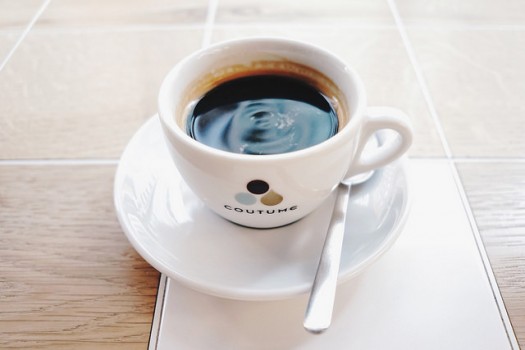Café Coutume
Posted on April 5, 2011 by VINGT EditorialWords: Omid Tavallai
Coffee is Paris has taken a turn for the better in recent times. It seems a long time ago that people were slashing through the images of postcard-perfect zinc counter tops and romantic sidewalks lined with little round tables peddled to the masses, proclaiming “The coffee here kinda sucks”.
This renaissance has a lot to do with the people who took it upon themselves to rise above the Parisian sport of complaining sans cesse, and do something about it. Among them are the passionate staff behind Coutume, a roastery and café that bucked the Parisian tradition of substandard coffee, itself in the highly traditional 7th arrondissement. An unlikely spot for such a mission, perhaps? We interviewed Coutume – now recognized as one of the first to lead Paris’s coffee renaissance, not long after they opened – here’s what co-founder Tom Clark had to say way back then!
“We didn’t choose the 7th expressly,” explains co-founder Tom Clark. (Full disclosure: Tom did work with VINGT Paris’ real estate operation.) “It just happened. It’s a beautiful community, though, it’s very tight. Within a week of opening we had regulars that come every day, twice a day. But we did have to be careful because we were quite different and unique and young, and maybe scary for some people who were used to having things done in a certain way, decoration being done in a certain way…”
“They came in every day and asked ‘When is the painting going to be finished?’ or ‘What color are you going to choose?'” adds co-founder and master roaster Antoine Netien, pointing out the purposely unvarnished walls. “The French are more accustomed to things that are more hidden. Our open motif is very American. You can see everything happening.”
And there’s still a lot happening at Coutume. Green coffee beans are roasted via Antoine’s exacting methods, visible to everyone through sheets of clear vinyl. Coffee is prepared in four ways and counting: via espresso machine, siphon, conical drip and – very unique anywhere in the world – through a cold-drip apparatus.
“There is a concept, yes. It’s a mix between expertise – we call it a laboratory space, everything is very measured and careful, the weight of the coffee, the temperature of the water – and comfort. There’s a typical parquet floor, high ceilings,” Antoine says.
“And history. History is important,” interjects managing director Carlos Pereira, pointing out curious remnants of the century-old architecture. “We have a mix of novelty and expertise when it comes to the coffee, but also a take on tradition and links to the history of Paris and the space itself.”
Tom summarizes the space as “a Haussmannian Paris apartment with a laboratory.” Declaring his crew “modern artisans” he espouses the modernity of all the machinery but the contrasting homey feeling of the space.
“Cafés have always been a cultural place. Everything in Paris has been made in a cafe! The universal declaration of human rights, the revolution. In Australia, in America, in England, the coffeehouse has come back as a cultural centre, but now in Paris, the majority of cafés are now about just getting your coffee,” Antoine laments, “Not having a political discussion around a coffee.”
They talk with pleasure about a customer who stayed for four hours, reading a book, writing on her computer, drinking a couple of espressos. “But we can accommodate everyone’s speed,” Tom insists. “If someone wants to be Formula 1, they can have an espresso. That’s 25 seconds.”
Those who have some more time can order a siphon, Antoine reminds us, a more time-consuming but sublime way to extract the most intricate flavors out of coarsely ground coffee. Next to the siphons and the deluxe La Marzocco espresso machine is a tall contraption, with glass baubles and golden struts, looking like something straight out of a Jules Verne novel.
“That’s the cold drip. It takes 24 hours,” Tom says. “You can see people admiring it. We deliberately put them all side by side so people can see the different methods to get their coffee.”
A group comes in and exchanges greetings with all of the staff and sit down at a table in an alcove as if it’s their own living room. There’s definitely a comfort factor in this vast 170 square metre laboratory space. And for all the mastery and expertise, a lab is still about learning.
“Everything will keep evolving. We’ll be getting a newer, higher capacity roaster of course. And we’re waiting for our Strada [the ne plus ultra of espresso machines], which itself will take several days of training from La Marzocco. So our coffeemaking techniques will evolve, as will our roasting, and we hope to continue learning through events like tastings, trainings, interactions with the public,” Antoine says. “And we want to teach as well – what it takes to be a barista, how to make a good cup of coffee at home.”
“The day any barista or coffee geek thinks that they know it all or thinks they’re done learning,” warns head barista Kevin Ayers, “is the day they begin to suck. There’s always something you don’t know about coffee.”
Kevin moved to Paris from the United States specifically to work at Coutume, which underscored both the café’s willingness to go the extra mile as well as the meagerness of coffee expertise on home turf at that time.
“There’s competition between us, but it’s not aggressive,” says Antoine about Coutume’s contemporaries. “We have room in Paris for 40 roasters! Hell, we’re not competitors, we’re colleagues. Who we really compete with are the big companies like Cafés Richard and Lavazza. We have the same desire: To see things change.”
“We’re taking on the monopolists,” adds Carlos. “The big distributors who have nothing to do with passion for coffee.”
Beyond not being able to pull an espresso worth a damn, the big distributors will never, ever have a 24 hour cold drip; a small, cold shot of which is best appreciated with a super premium bean like Ethiopian Nekisse, sharing all the complexity and refinement of a fine malt whiskey. It’s the kind of bean that sells for just around €100 a kilo, a price proportionate to its difficulty of acquisition, as well as the time and care it takes to properly roast it.
Of course, while Coutume is about excellence, it’s not about out-of-reach luxury. Most of the menu actually costs less than at many cafés. Looking at the menu, then around at the posh surroundings and its myriad fancy contraptions, there’s a cognitive dissonance. Albeit a very pleasant one.
“The prices reflect the value of the raw material. We buy our coffee direct, we don’t buy it roasted, which gives us the ability to keep prices interesting. Because it’s when you roast it that you add the value,” Tom says. “We feel that it’s not part of the coffee culture to rob people. Part of the coffee business is to have an ethical base. We didn’t go ‘We’re in Paris, we’re in the 7th, Starbucks charges this amount…’ We started with our slate completely blank. We figured, ‘This is how much time we put in, this is our dedication, this will determine how much it’s worth.’ And if we’ve come out charging beneath what Starbucks or our other competitors are doing, then so much the better.”
And, indeed, it is so much better.
Coutume
47 rue de Babylone, 7th
Hours: Mon-Fri 8am – 7pm, Sat and Sun 10am – 7pm
Metro: St-François-Xavier (13) or Sevres-Babylone (10, 12)


